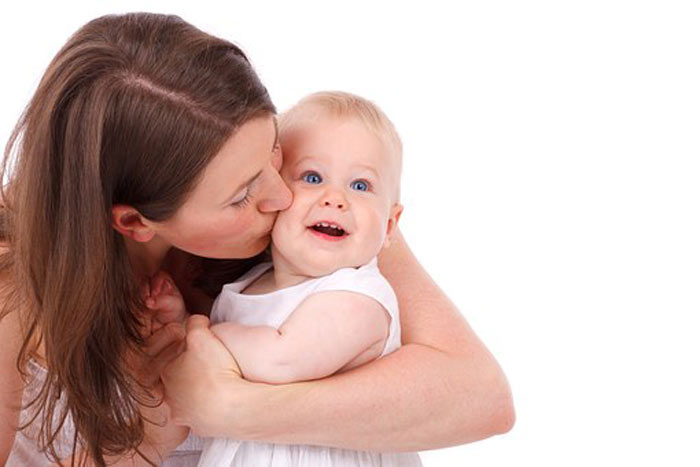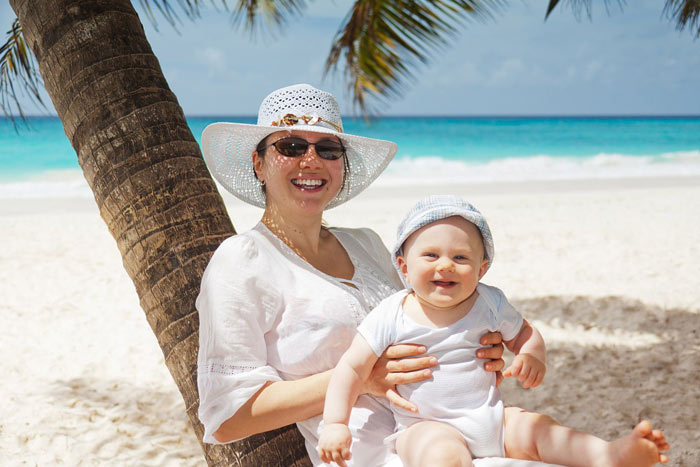Are you becoming increasing aware of the ticking of the biological clock? Are you starting to think about starting a family? If you’re nearing 40 and seriously thinking that it’s time to have a baby, you wouldn’t be alone. According to the 2015 National Vital Statistics Report released by the Centers for Disease Control, women between the ages of 40 and 44 had a 2% rise in the number of births while teens and early twenties pregnancies dropped to a record low.

But, Why are Women Opting to Have Babies Later in Life?
Several factors contribute to pregnancies after 40. With more and more women having successful careers, the focus is more on professional success than having kids. Further, women like to be financially secure before they feel confident enough to support a child. Some others just don’t find the time or the inclination to look for a strong relationship and get married. Then again, having the availability of IVFs and other fertility treatments for older women makes it easier to push back getting pregnant to a later time in life.
If You Have Decided to Get Pregnant at 40, What Should be Your Moves?
If you have been delaying having a baby, you must know that pregnancy after 40 brings with it a long list of complications. Talk to your gynecologist and she will likely list all the reasons why you should have your babies by the age of 35. That’s the age when the production of hormones in your body starts to slow down. But, if you do want to get pregnant at this age, you must prepare your body carefully so you can carry and raise a healthy baby. Here’s everything you need to know.
Talk to Your Doctor about Your Plans
The best person to advise you on the steps to take is your doctor. He will run a series of fertility tests to assess your reproductive health like for instance, the number of viable eggs you have left. Depending on your results, you’ll receive recommendations and if needed, medication to prepare your body for the big natural event. Remember, if you’ve been on the pill or contraceptive injections, it may be a while before the effects wear off and you can conceive.
As Medical Director of Seattle Reproductive Medicine, Michael Soules M. D. explains, “All women are born with a certain number of eggs, and you lose them over your reproductive life span. At some point— about 10 years before the onset of menopause— the number drops to a level where your fertility is compromised.”
You May Have to Balance Your Hormones
 Given your declining hormone levels, your doctor might start you on supplements to balance them so you have a better chance of conceiving. While your fertility expert can advise you best, do ask about women hormone imbalance treatments that are plant-sourced and identical to those produced by your body. A properly balanced formulation of estradiol, progesterone, and follicle stimulating hormones may be essential for the health of your eggs. You can also ask about the special foods that you can add to your diet to strengthen the uterus and ovaries. These can include royal jelly, maca, and spirulina that contain folic acid, CoQ10 Ubiquinol, and vital antioxidants that are essential for a pregnancy after 40.
Given your declining hormone levels, your doctor might start you on supplements to balance them so you have a better chance of conceiving. While your fertility expert can advise you best, do ask about women hormone imbalance treatments that are plant-sourced and identical to those produced by your body. A properly balanced formulation of estradiol, progesterone, and follicle stimulating hormones may be essential for the health of your eggs. You can also ask about the special foods that you can add to your diet to strengthen the uterus and ovaries. These can include royal jelly, maca, and spirulina that contain folic acid, CoQ10 Ubiquinol, and vital antioxidants that are essential for a pregnancy after 40.
Detox Your Body of the Xenoestrogens
Older women tend to have a higher buildup of xenoestrogens in their bodies. Xenoestrogens are toxic chemicals that mimic natural estrogen and find their way into your body through many different channels such as plastic containers for storing and cooking food, cleaning chemicals you use around the house, pesticides in your food, and many more. The trouble with these chemicals is that they affect your reproductive health making it difficult for you to conceive or carry a baby to full term. Before you begin trying to get pregnant, do a complete detox of your body. Try to eliminate the use of chemicals and plastics from your home and introduce organic food.
Exercise to Detox and Strengthen Your Pelvic Floor
Your doctor will recommend a healthy exercise regimen that helps in more ways than one. To begin with, the body detoxes by sweating so you’ll be cleansing it of the harmful chemicals. In this way, you’ll avoid the possibility of passing on toxins to the baby in utero or by breastfeeding. Further, exercise helps you develop the necessary strength and endurance levels needed to nurture a baby and go through labor. Kegel exercises are especially useful for toning your pelvic floor muscles and preparing them for a pregnancy after 40. You could also try yoga, biking, swimming, pilates, or any other workouts your doctor advises.
 Make Some Serious Lifestyle Changes
Make Some Serious Lifestyle Changes
If you’re really thinking of bringing a baby into the family, you’ll need to make some lifestyle changes. Take a good look at these recommendations.
- No excessive alcohol and caffeine, and no smoking.
- Stay hydrated with lots of water.
- Bring your weight down to optimum levels.
- Eat small meals all through the day to keep your insulin levels balanced. An excess of insulin contributes to higher testosterone levels.
- Change your diet and switch to whole grains, healthy fats, lean meats, and lots of fruits and vegetables.
- Take all the prescribed vitamins.
Here’s a Final Tip – Lower Stress Levels
When you go about trying to find out all you can about getting pregnant after 40, one of the first facts that are likely to come up is that such women have only a 5% probability of conception per cycle. You can raise these chances by keeping stress away. As fertility specialist at Boston’s Brigham and Women’s Hospital, Janis Fox, M. D. explains, “There’s nothing a couple that is trying to get pregnant wants to hear less than ‘Relax, you’re trying too hard.’”
Having a baby is an amazing experience, even if you’re getting pregnant after 40. The important thing is to be prepared to have one, physically and mentally. Even if your life situation has resulted in your going through this miracle of nature later in life, there’s no reason why you can’t have a lovely, healthy baby. You only need to be ready for the challenges you may have to face and soon, you’ll be a proud parent of an adorable bundle of joy.










